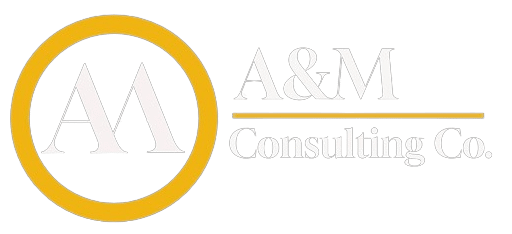
Business in Turkey
Business in Turkey: Opportunities, Challenges & Key Insights
Turkey, strategically positioned at the crossroads of Europe and Asia, is a dynamic and growing economy. With a young population, a strong entrepreneurial culture, and government incentives for investors, Turkey offers a wealth of opportunities for local and international businesses. In this article, we will explore the business environment in Turkey, including key industries, challenges, and tips for success.
Table of Contents
Why Invest in Turkey?
1. Strategic Location
Turkey serves as a bridge between East and West, making it a prime hub for international trade. Its proximity to Europe, the Middle East, and Asia allows businesses to access diverse markets efficiently.
2. Large and Young Population
With a population exceeding 85 million, Turkey boasts a youthful and skilled workforce. This demographic advantage provides businesses with a steady consumer base and a competitive labor market.
3. Government Incentives
The Turkish government actively supports investors through tax reductions, free trade zones, and financial assistance programs. Various sectors, including technology, manufacturing, and tourism, benefit from these incentives.
4. Growing Economy
Turkey has shown resilience in economic growth, with key industries such as construction, textiles, automotive, and agriculture driving its GDP. The country is also a key player in the global export market.

Key Industries for Business in Turkey
Turkey has a diverse and rapidly growing economy, making it an attractive destination for businesses across various industries. Here are the key industries for business in Turkey:
1. Manufacturing & Industrial Production
- Automotive – Turkey is a major production hub for global brands like Ford, Toyota, and Renault.
- Textiles & Apparel – One of the world’s largest textile producers, exporting to Europe and beyond.
- Electronics & Machinery – Home to key manufacturers of white goods, appliances, and industrial machinery.
2. Energy & Renewable Resources
- Renewable Energy (Solar, Wind, Hydro) – Government incentives make Turkey a growing player in renewables.
- Oil & Gas – A strategic location for energy transit between Europe and Asia.
3. Technology & IT
- Software Development & Startups – Istanbul is becoming a tech hub with increasing government support.
- E-commerce – Platforms like Trendyol and Hepsiburada show Turkey’s booming online retail sector.
- Fintech & Blockchain – Rapid adoption of digital payment solutions and blockchain technology.
4. Tourism & Hospitality
- Cultural & Historical Tourism – Istanbul, Cappadocia, and Ephesus attract millions of visitors.
- Health Tourism – Turkey is a global leader in medical tourism, particularly for cosmetic surgery and dental treatments.
5. Agriculture & Food Processing
- Agri-business – Turkey is one of the largest agricultural producers in Europe.
- Food Exports – Olive oil, nuts, and fruits are key exports.
6. Logistics & Trade
- International Trade – Turkey’s strategic location makes it a hub for exports to Europe, the Middle East, and Asia.
- Shipping & Transportation – The country invests heavily in infrastructure, including airports and seaports.
7. Construction & Real Estate
- Mega Infrastructure Projects – Ongoing investments in bridges, highways, and urban development.
- Foreign Property Investments – Growing interest from international investors, particularly in Istanbul and Antalya.
Business Registration and Legal Requirements in Turkey
Setting up a business in Turkey involves several legal steps and regulatory requirements. Below is a detailed guide on the business registration process and legal obligations for companies operating in Turkey.
1. Types of Business Entities in Turkey
Before registering a company, you must choose the right legal structure. The most common types are:
Limited Liability Company (LLC) – “Limited Şirket (LTD)”
- Minimum capital: 50,000 TRY
- At least one shareholder (can be foreign)
- Suitable for SMEs and startups
Joint Stock Company (JSC) – “Anonim Şirket (A.Ş.)”
- Minimum capital: 250,000 TRY
- Requires at least one shareholder
- Best for large-scale businesses and public offerings
- No separate legal entity, operates as an extension of the parent company
- Requires a fully authorized local representative
- No commercial activities, only for market research or promotion
- Requires approval from the Ministry of Industry and Technology
2. Steps to Register a Business in Turkey
Step 1: Choose a Business Name
- The name must be unique and follow Turkish business naming regulations.
- It must be checked and approved by the Trade Registry Office.
Step 2: Prepare the Required Documents
- Articles of Association (AoA) (prepared and notarized)
- Shareholder(s) passport copies (notarized and translated if foreign)
- Tax Identification Number (for foreign shareholders/directors)
- Power of Attorney (POA) (if using a legal representative)
- Registered business address (a legal requirement)
Step 3: Register with the Trade Registry Office (TRO)
- Submit documents to the Istanbul Chamber of Commerce (ITO) or relevant local Trade Registry Office.
- The registration process usually takes 5-7 working days.
Step 4: Obtain a Tax ID and Social Security Registration
- Register with the Turkish Tax Authority.
- Enroll employees with the Social Security Institution (SGK) if applicable.
Step 5: Open a Business Bank Account
- A local bank account is required for transactions and tax compliance.
- Some banks may require a visit in person.
Step 6: Register for E-Invoicing (If Required)
- Certain businesses must comply with e-invoice and e-ledger requirements based on turnover thresholds.
3. Tax & Legal Compliance in Turkey
Once the company is registered, it must comply with Turkish financial and tax laws.
Corporate Taxes:
- Corporate Income Tax: 25% (subject to change)
- VAT (Value Added Tax): 1%, 8%, 10, 18 or 20% (standard rate) depending on the business sector
- Withholding Tax: 10-20% (applies to dividends, royalties, and interest)
Financial & Accounting Compliance:
- Bookkeeping must comply with Turkish GAAP (Generally Accepted Accounting Principles).
- Monthly VAT and tax filings are required.
- Annual financial statements must be submitted.
Employment & Payroll Regulations:
- The minimum wage and labor laws must be followed.
- Employees must be registered with SGK (Social Security Institution).
- Foreign employees need a work permit.
4. Special Incentives & Free Zones
Foreign investors can benefit from:
- Technoparks (tax benefits for R&D companies)
- Free Trade Zones (tax advantages for export-oriented businesses)
- Investment Incentive Programs (government support based on industry and region)
Challenges of Doing Business in Turkey
While Turkey offers great opportunities for businesses due to its strategic location and growing economy, there are also challenges that foreign investors and companies should be aware of. Below are the key obstacles and considerations when doing business in Turkey:
1. Bureaucracy & Regulatory Complexity
- Setting up a company requires multiple approvals, notarizations, and registrations, which can be time-consuming.
- Frequent changes in tax and business laws make compliance challenging for foreign investors.
- Dealing with public institutions can be slow, especially when applying for permits, tax registrations, and work permits.
Solution: Work with a local accountant, lawyer, or business consultant to navigate legal requirements efficiently.
2. Economic & Currency Volatility
- The Turkish Lira (TRY) is highly volatile, impacting foreign exchange risks for businesses.
- Inflation rates are high, which affects purchasing power and operational costs.
- Interest rates fluctuate, making it difficult to predict loan and financing costs.
Solution: Use hedging strategies for currency fluctuations and price contracts in stable currencies (USD, EUR) when possible.
3. Taxation & Financial Compliance
- The corporate tax rate (25%) and VAT compliance can be complex, requiring monthly declarations.
- The government frequently updates tax regulations, making it necessary to stay informed.
- E-invoicing and e-ledger requirements add extra administrative work for businesses.
Solution: Hire a local tax consultant to ensure compliance with corporate, VAT, and payroll taxes.
4. Cultural & Language Barriers
- Turkish is the main language for business, and many government documents are not available in English.
- Business culture emphasizes relationship-building, and decisions may take longer than expected.
- Contracts and negotiations require a clear understanding of local business etiquette.
Solution: Work with a bilingual business partner or consultant to avoid miscommunication.
5. Banking & Financial Transactions
- Although opening a business bank account is easy, especially for foreigners, transferring money to neighboring countries like Russia and Iran is not possible.
- Some banks require a physical presence of company directors for account opening.
- Crypto payments and crypto transfers are subject to strict regulations.
Solution: Choose a bank with experience in working with foreign investors and explore alternative banking options.
6. Employment Regulations & Work Permits
- Foreigners must obtain a work permit before starting employment, which can take several months.
- Businesses must hire at least 5 local workers to employ foreign workers
- Strict labor laws make it difficult to fire employees without compensation.
- The minimum wage is increased every year (sometimes twice a year)
Solution: Plan human resource strategies in advance and consider outsourcing payroll processing.
7. Political & Geopolitical Risks
- Turkey’s location between Europe, the Middle East, and Asia makes it susceptible to regional instability.
- Government policies may change due to political shifts, impacting foreign investors.
- Some international sanctions and restrictions may affect specific industries.
Solution: Diversify business risks and stay updated on regulatory changes.
8. Import & Export Regulations
- Customs procedures can be slow, with frequent regulatory changes.
- High import duties and tariffs can impact the cost of goods.
- Certain products require special certifications (e.g., CE marking for electronics, Halal certification for food).
Tips for Success in the Turkish Market
Expanding into Turkey offers great opportunities due to its strategic location, young population, and growing economy. However, to succeed, businesses must understand the local market dynamics, regulations, and cultural nuances. Below are the key strategies for success in Turkey:
Understand the Business Culture
- Build Relationships: Turkish business culture values trust and long-term partnerships. Face-to-face meetings are preferred.
- Negotiation Style: Business negotiations can be lengthy; patience and flexibility are important.
- Hierarchy Matters: Decision-making is often top-down, especially in traditional family-owned businesses.
Tip: Invest time in networking, attend business events, and develop a local presence to build trust.
Work with a Local Partner
- Having a local distributor, agent, or consultant helps navigate bureaucracy, regulations, and language barriers.
- A Turkish partner can provide market insights, connections, and credibility.
Tip: Partner with well-established local firms to avoid risks and speed up market entry.
Adapt Your Marketing Strategy
- Localize Branding & Communication: Use Turkish language in your marketing materials.
- Leverage Social Media: Platforms like Instagram, Facebook, and Trendyol are popular for e-commerce.
- Understand Consumer Preferences: Turkish consumers value quality, price competitiveness, and personal recommendations.
Tip: Consider digital marketing campaigns and influencer collaborations to boost visibility.
Navigate Bureaucracy & Legal Requirements
- Business setup involves multiple registrations, permits, and tax obligations.
- Some industries require special licenses or certifications (e.g., food, pharmaceuticals, electronics).
Tip: Hire a local lawyer and accountant to ensure full compliance with Turkish regulations.
Manage Currency & Financial Risks
- The Turkish Lira (TRY) is volatile, so businesses should mitigate currency risks.
- International transactions may be subject to banking regulations and delays.
Tip: Price contracts in USD or EUR to reduce currency risks and work with banks that offer hedging options.
Hire & Retain the Right Talent
- Labor laws are strict, so ensure proper compliance with employment contracts and social security (SGK).
- Finding English-speaking employees in technical roles may be challenging.
- Turkish professionals value stability and career growth opportunities.
Tip: Offer competitive salaries, benefits, and career growth opportunities to attract top talent.
Leverage Government Incentives & Free Zones
- Turkey offers investment incentives in specific sectors (technology, R&D, manufacturing, etc.).
- Technoparks and Free Zones provide tax advantages for exporters and tech startups.
Tip: Research and apply for government grants, tax incentives, and free zone benefits.
Focus on E-Commerce & Digital Payments
- Turkey has a fast-growing e-commerce sector, with platforms like Trendyol, Hepsiburada, and Amazon Turkey.
- Consumers prefer credit cards, digital wallets, and installment payment options.
Tip: Ensure mobile-friendly websites and offer secure, localized payment solutions to increase sales.
Be Prepared for Changing Regulations
- Tax laws, foreign investment policies, and trade regulations can change frequently.
- Government policies on import duties, foreign currency use, and labor laws require ongoing monitoring.
Tip: Stay updated with legal advisors and industry associations to remain compliant.
Offer Excellent Customer Service
- Turkish consumers expect fast, responsive, and personalized service.
- After-sales support and returns policies can influence customer loyalty.
Tip: Provide multilingual customer support and use WhatsApp, live chat, or call centers for quick response times.
Government Incentives & Support for Invest in Turkey
Turkey offers various government incentives and support programs to attract both domestic and foreign investors. These incentives aim to promote economic growth, exports, innovation, and job creation. Below is a breakdown of the key programs available for businesses in Turkey.
1. Investment Incentive Program
The Investment Incentive Program is designed to support businesses in key industries and regions. It includes:
✅ VAT & Customs Duty Exemptions – No VAT or customs tax on imported machinery and equipment.
✅ Tax Reductions – Reduced corporate tax rates based on the region and investment type.
✅ Social Security Premium Support – The government covers employer contributions for a specific period.
✅ Interest Rate Support – Lower interest rates for bank loans in priority investment areas.
✅ Land Allocation – Free or discounted land for eligible investment projects.
Eligibility: Available for both local and foreign investors in various sectors such as manufacturing, technology, energy, tourism, and agriculture.
2. R&D and Innovation Incentives
To support technology and innovation, Turkey offers the following incentives:
✅ R&D Law (5746):
- 100% corporate tax exemption on R&D expenditures.
- 50% income tax reduction for R&D employees.
- SGK (Social Security) support for R&D personnel.
- Cash grants for R&D projects approved by TÜBİTAK (Scientific and Technological Research Council of Turkey).
✅ Technology Development Zones (Technoparks):
- Tax-free profits from R&D activities.
- No VAT on software sales and tech-related exports.
- Income tax exemption for R&D personnel.
✅ TÜBİTAK & KOSGEB Grants:
- R&D project funding for SMEs and startups.
- Prototype development and commercialization support.
Who Can Apply? Tech startups, software companies, manufacturers, and businesses engaged in innovation.
3. Export Incentives & Free Trade Zones
Turkey promotes exports and global trade with the following benefits:
✅ Turquality Program – Financial support for branding and international expansion.
✅ Market Entry Support – Funding for trade fairs, advertising, and overseas office setups.
✅ Export VAT Refunds – VAT exemptions on exported goods.
✅ Free Trade Zones (FTZs):
- 100% corporate tax exemption on manufacturing exports.
- No customs duties or VAT.
- Flexible labor laws and simplified bureaucratic procedures.
Who Can Benefit? Exporters, manufacturers, and companies expanding internationally.
4. SME & Entrepreneur Support (KOSGEB)
The Small and Medium Enterprises Development Organization (KOSGEB) provides:
✅ Startup Grants – Up to 375,000 TL for new businesses.
✅ R&D and Innovation Support – Funding for new product development.
✅ Digital Transformation Grants – Support for e-commerce, software, and automation projects.
✅ Training & Consultancy Support – Free guidance for business growth.
Who Can Apply? SMEs, entrepreneurs, and startups in all industries.
5. Renewable Energy & Green Investment Incentives
Turkey encourages sustainable and green energy projects with:
✅ Feed-in Tariffs & Purchase Guarantees – Long-term government contracts for solar, wind, and biomass energy.
✅ VAT & Customs Duty Exemptions – No tax on imported solar panels, wind turbines, and energy equipment.
✅ Investment Tax Credits – Reduced corporate taxes for green energy projects.
Who Can Apply? Investors in solar, wind, hydro, and bioenergy projects.
6. Employment & Workforce Incentives
The government provides financial support for businesses hiring employees:
✅ Social Security Premium Support – The state covers employer SGK (social security) contributions.
✅ Employment Grants – Direct financial support for hiring young workers, women, and disabled employees.
✅ On-the-Job Training Programs – The government pays employee salaries during training periods.
Who Can Apply? Companies hiring new employees, apprentices, or trainees.
7. Digital & Tech Business Support
For businesses in e-commerce, fintech, and software, incentives include:
✅ E-Export Support – Funding for website localization, digital marketing, and international logistics.
✅ VAT Exemptions for Software & IT Exports – No VAT for software exported from Turkey.
✅ Fintech & Blockchain Grants – Special funding for fintech startups from TÜBİTAK and KOSGEB.
Who Can Apply? Tech startups, IT firms, e-commerce platforms, and fintech companies.
Contact Us for Business in Turkey
Turkey presents a promising landscape for entrepreneurs and investors, thanks to its strategic location, skilled workforce, and dynamic economy. With strong government incentives, financial benefits, and a growing market across manufacturing, technology, exports, and renewable energy, businesses have ample opportunities to expand and succeed.
However, navigating the Turkish market requires a strategic approach—understanding local business culture, regulations, and financial risks, while building strong partnerships. Despite challenges, companies that adapt and leverage available support can achieve long-term success.
If you’re considering establishing or expanding your business in Turkey, we offer comprehensive assistance in company registration, tax compliance, bookkeeping, and legal advisory. Let us help you maximize your success in this vibrant market!
A&M Consulting Co. is an business consultancy firm specialized in Business Consulting for especially global investor and foreign companies & indivicual entrepreneurs.
We continue to provide cost-effective professional tax services as for global companies and individual entrepreneurs & indivicuals who want to enter the Turkey’s market smoothly, quickly, and fully comply with local legislation.
Contact us today to explore tailored solutions for you.
You can reach out to our experienced consultans via email or by filling out the Contact Form on our website’s contact page
DISCOVER OUR SERVICES:
- Company Registration in Turkey
- Bank Account in Turkey
- Accounting & Bookeeping Services
- HR & Payroll Services
- Business Consultancy for Turkey
- Social Security Registration
- Virtual Office & Legal Address in Turkey
- Turkish Citizenship
- Turkey Work Visa
- Turkey Investment Visa
- Turkiye Tech Visa
- Non-Profit Organization in Turkey
- Establishment of Association in Turkey
- Foundation Registration in Turkey
- Company Winding Up in Turkey
FAQs About Business in Turkey
Yes, Turkey is an attractive destination for business due to its strategic location, large consumer market, government incentives, and growing economy. Sectors such as manufacturing, tourism, and technology are particularly profitable.
The most profitable industries include real estate, tourism, technology startups, manufacturing, textiles, and agriculture. E-commerce and fintech are also rapidly growing sectors.
- Strategic location between Europe, Asia, and the Middle East
- A large, young, and skilled workforce
- Government incentives for foreign investors
- A growing and diversified economy
- Strong infrastructure and logistics network
- Economic fluctuations and currency volatility
- Bureaucratic processes and regulatory complexity
- Language barriers for non-Turkish speakers
- Cultural differences in business practices
The Turkish government provides various incentives, including tax exemptions, free trade zones, financial grants, and residency permits for investors in certain sectors.
To establish a company, you need:
- A registered business address
- A minimum capital amount (varies by company type)
- A Turkish tax ID number
- A bank account for capital deposit
- Registration with the Trade Registry Office
Yes, foreigners can fully own a business in Turkey without a local partner, except in certain regulated industries like defense and media.
- Limited Liability Company (LLC – Ltd. Şti.) – Most common for small to medium-sized businesses
- Joint Stock Company (JSC – A.Ş.) – Suitable for large businesses and requires a board of directors
- Branch Office – An extension of a foreign company operating in Turkey
- Liaison Office – A non-commercial representative office for market research
Corporate tax in Turkey is 25% (subject to changes). VAT varies between 1%, 8%,10%,18% & 20%, depending on the goods and services. Other taxes include income tax for employees and social security contributions.
- Choose a company type and structure.
- Obtain a tax identification number.
- Deposit minimum capital in a Turkish bank.
- Register with the Turkish Trade Registry Office.
- Apply for a business license and work permits (if required).
- Open a corporate bank account.
Generally, Turkey has an open policy for foreign investors, but some sectors like banking, media, and defense may have restrictions.
Foreigners investing at least $500,000 or creating 50 jobs in Turkey can apply for Turkish citizenship. Property investments of $400,000+ also qualify for citizenship by investment.
- Limited Liability Company (LLC): Minimum capital of 50,000 TRY
- Joint Stock Company (JSC): Minimum capital of 250,000 TRY
Yes, foreigners can purchase commercial and residential properties in Turkey, except in military and restricted zones.
Turkish banks and financial institutions offer business loans, but foreigners may need a local guarantor. Other options include venture capital, angel investors, and government grants.
The leading sectors include manufacturing, construction, tourism, agriculture, automotive, and technology startups.
Turkey’s economy is dynamic, with strong sectors like manufacturing and exports. However, it faces periodic fluctuations in currency value and inflation.
Turkey has a young, skilled, and cost-effective labor force. The minimum wage is updated annually, and labor laws protect workers’ rights.
- Istanbul – Financial and trade hub
- Ankara – Government and tech startups
- Izmir – Logistics and tourism
- Bursa – Automotive and manufacturing
- Antalya – Tourism and real estate
Turkey has a competitive market with strong local and international businesses. Companies with unique value propositions and digital marketing strategies tend to perform well.
Turkey exports automotive parts, textiles, machinery, electronics, food products, and chemicals.
Yes, Turkey has free trade agreements with the EU, UK, EFTA, and many Middle Eastern countries, making it a strategic hub for exports.
Businesses must comply with Turkish Customs regulations, acquire necessary permits, and pay import/export duties based on product classification.
Turkey has a booming e-commerce sector. Businesses must register with the Turkish Trade Registry, comply with local tax regulations, and integrate with payment gateways like Iyzico, PayTR, or Stripe.
Turkey has a well-developed logistics sector, with access to major ports, highways, and airports. Istanbul serves as a key hub for global trade routes.



